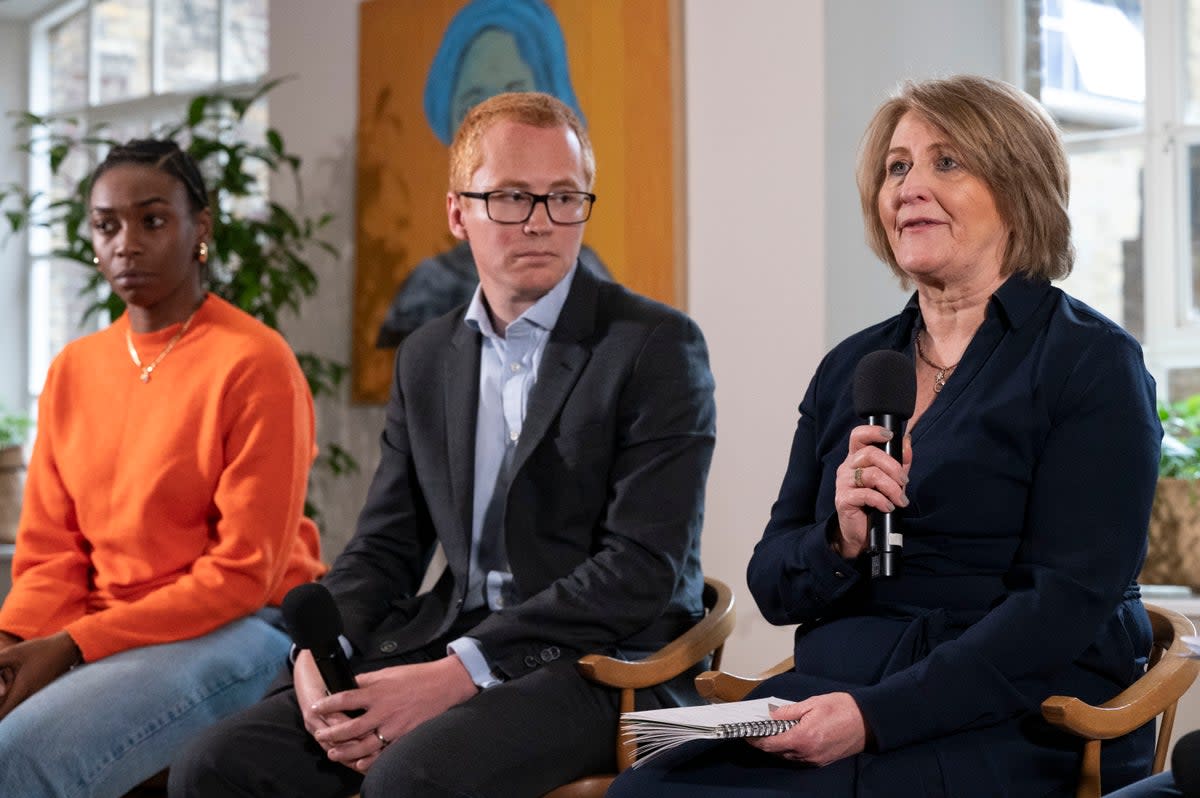Politicians ‘are scared’ about discussing violence against women and girls

It would cost just £20 million to give every schoolchild access to a healthy relationships programme in Year Nine, a panel event tackling violence against women and girls heard this week.
The spend would be only 0.02 per cent of the Department for Education’s budget, but this has not happened because violence against women and girls is a subject politicians feel “scared” about discussing, experts warned.
Although the scale of the problem can seem overwhelming, change is possible by “starting where you are and doing what you can”, panellists said at an event organised as part of the Evening Standard’s Show Respect campaign in partnership with The London Community Foundation, which aims to tackle violence against women and girls.
Hundreds of people watched online and in person at the Conduit Club in Covent Garden as professionals who work to combat violence spoke about how best to end this “serious problem”.
The panel discussion took place against the backdrop of an escalation in the sexist abuse and harassment that girls are suffering in schools and their neighbourhoods, as well as the rise of misogynistic influencers such as Andrew Tate, and easy access to pornography on smart phones.
Delegates at the event heard alarming statistics including that every three days in the UK a woman is killed by a man. The audience also heard that one in two men aged 16 to 24 think feminism has gone too far, and only seven per cent of perpetrators of domestic abuse are charged.
Despite the dire figures, not enough is being done to combat the problem, and the government has not yet cared enough about it, the audience heard. Anne Longfield, former children’s commissioner, said: “Often government decides things are too difficult and puts them in a box and then ignores them or does stuff round the edges. And I think this is something which people in government are scared of and feel squeamish about — it doesn’t have that champion who leads it.”
Ms Longfield, who founded the Centre for Young Lives think tank, said that nobody in government has wanted things to change enough, adding: “If a government wants something to happen it can make it happen, that’s what governments can do.”
The Standard is funding 12 charities that provide healthy relationships workshops in schools as part of the Show Respect campaign.
Jon Yates, executive director of the Youth Endowment Fund, said evidence from 16 evaluations shows that teaching children about healthy relationships can reduce levels of violence by 15 to 20 per cent. “In my world that’s a big change. We are talking about thousands of individual teenage children who didn’t experience sexual assault if a programme like that happened.”
He said it would cost £20 million to give every schoolchild access to a healthy relationships programme in Year Nine. “That is not a lot of money…So why is it not happening?”
Ebinehita Iyere, a therapeutic youth practitioner and founder of Milk Honey Bees, one of the 12 organisations the campaign is funding to deliver healthy relationships workshops, spoke about the work she does with black girls.
“A lot of the time when you see programmes around violence and gender, they [black girls] are invisible,” she said. “The work we are trying to do is to make sure that black girls have autonomy and understand they are not to blame.”
She called for more funding for training for current practitioners who are on the frontline helping young women.
Steve Chalke, founder of the Oasis academy chain, said: “We have to understand this is a societal issue not just a school issue. What happens among kids and teenagers is reflective of what is going on in society.”

 Yahoo News
Yahoo News 
